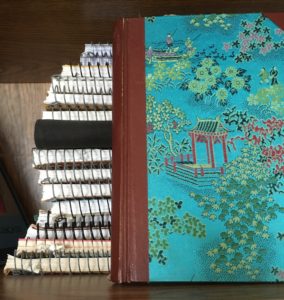 A Million Words
A Million Words
One of my former colleagues used to tell his writing students that, in order to become writers, they had to produce and throw away a million words.
That sounds daunting, doesn’t it?
Another piece of advice goes, write a page a day and in a year you could write a novel. In these terms and calculating that each page contains about two hundred and fifty words, you need nearly eleven years to produce a million words.
But why don’t we look at the math a little differently?
Let’s say that you decide to use journaling to practice the craft of writing. Sprint writing, that is, non-stop writing done for a short while, can produce about two hundred and fifty words in a typical ten-minute session. Twenty minutes a day of journaling would produce five hundred words which means you could crank out your million words in five and a half years. Forty minutes a day would get you your expendable million words in two and three-quarters years.
On the other hand, twenty to forty minutes a day practicing an art form you aspire to master is very little time, especially compared to the work put in by a budding pianist who probably practices a minimum of an hour a day or a dancer who may put in several hours a day. And twenty to forty minutes of practice a day is far below the standard eight-hour work day.
So just for the sake of argument, let’s boost our writing practice to an hour a day. (And do notice that unlike the dancer who must frame the practice session with a warm up and cool down, the future writer can practice writing in several short sessions every day.) If you write an hour a day, you will produce about 1,500 words a day which translates into 667 days or 1.8 years. Compared to the other arts we’ve mentioned, this is a very brief apprenticeship.
And chances are you will notice what I noticed after less than a year of journal-keeping: that it primes the pump for other writing like stories, poems, and articles that you won’t have to throw away because the words you’ve written on the way to your million have given you fresh ideas and fluency.
So speaking as a multi-millionaire of throwaway words, I advise you to start writing–now.
“A Million Words” received a Special Honorable Mention in the filler category of a ByLine Magazine writing contest in 1999. It was later published in Fiction Writers Guidelines.
<> <> <>
For Christmas 1984, a dear friend gave me the beautiful book shown in front of several others in the photo. On January 1, 1985, I started filling its lined pages. Before the end of March, I’d filled every page, so I got another notebook about the same size though not nearly as nice. After I’d filled that one, I bought another and starting filling it, too. I’ve forgotten exactly how many I’d filled by the end of ’85. I can tell you that I drafted two novels in ’86: one in the spring semester while teaching a full load at one of the top community colleges in the United States and the other during a sabbatical leave in the fall.
Definitely I credit my journal-keeping habit for priming the pump for those two novels and many of the other pieces of writing I’ve done in the thirty-five years since then. My current journal is Book # 140. Except for possibly missing five days, I have literally written a journal entry every day of my life in the thirty-five years since I started. Some days my entries are very bare bones, little more than the date and a very brief weather report, especially when I’m working on a long project like a novel. But some days I go on and on.
Over all those years of journal keeping I’ve found that it has help me develop my writer’s voice and also rather organically grows other pieces of writing. For example, several years ago, I found myself recording snippets of observations of crows in my neighborhood on the pages of my journal. And eventually they coalesced into one of my more popular pieces, “Crow Lessons.”
Currently, I’m struggling with finding details for my current WiP, set in Kansas City in April 1901. With previous novels and stories in this series, I’ve done research in The Kansas City Star archives, especially details about what the weather actually was on a particular day. But the newspaper has changed the mode of access to those files and I haven’t been able to get in. Now I suspect that the newspaper has lots more important things to do than guide an indie author to the right link.
But then the other day, quite dreary with thunder and freezing rain falling, as I was doing my journal entry, I had a Eureka moment. I could use the weather in Kansas City in early April 2020 for two and half weeks later in April 1901 given the changes brought by climate change. And suddenly, I saw that male cardinal, bright red against the small, tender leaves of the hedge around my patio, that chirped in apparent dismay as something my character could see. Oh yeah and a neighbor’s daffodils and . . .
Thus is the magic of your journal that it helps you be a writer in small ways and big every day of your life. So if you don’t keep a journal, start one ASAP. (You can use the sprint writing method to explore the setting of your novel.)
Please come back tomorrow for Card # 9, one of my personal favorites.
